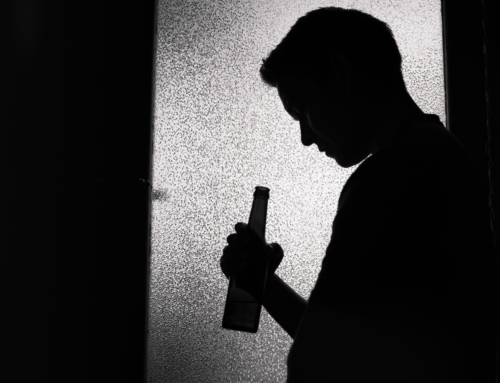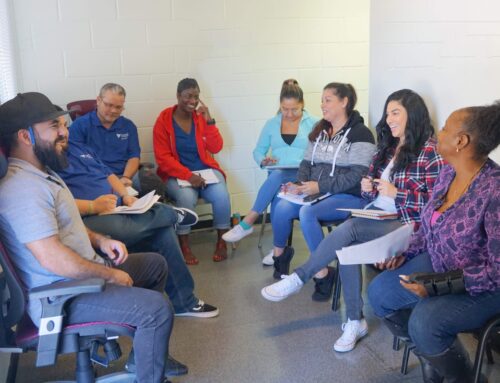Moral injury is the term applied to the mental damage one suffers after having been witness or participant to events that deeply conflict with one’s ethics or moral code. While attention by organizations and the public is being paid to moral injury in the general context, very little is being focused specifically on moral injury and women veterans.
 Moral Injury Is Not PTSD
Moral Injury Is Not PTSD
Moral injury in the context of combat and military service differs from PTSD. Moral injury is not a recognized mental disorder that can be diagnosed, but neither was PTSD for a long time. Moral injury is also different from PTSD in that it can also manifest from both direct and indirect acts and events.
Further examples of events causing moral injury might include:
- The use of deadly force that resulted in the unintentional deaths of civilians
- Giving or following orders that unintentionally caused the death of fellow service members
- Deaths of local nationals due to their cooperation with U.S. military forces
- Following illegal or immoral orders due to no alternatives
- Failure to report knowledge of sexual assault against a fellow service member
- Failure to render medical aid to a fellow service member or civilian
Though there are no such statistics yet for moral injury, studies from the National Institute of Mental Health show women are more susceptible to PTSD, at 5.2% last year compared to 1.8% in men. The Department of Veterans Affairs reports that veterans are 3 times more likely to commit suicide if they have taken a life during their enlistment. These sobering statistics show the damaging potential of moral injury to women veterans due to their unique experiences in the armed services.
How Moral Injury and Women Veterans Collide
A woman’s experience in the military can be vastly different than her male counterpart due to a higher incidence of military sexual trauma, which is the threat or experience of sexual assault or harassment. It is referred to as “MST”. A scholarly article on military sexual trauma found that of those that reported MST (both assault and harassment), 38.4% were women and just 3.9% were men. While it is accepted that MST can be a cause for PTSD, it is believed that it can also be a risk factor for moral injury as well.
Shame and Guilt in Moral Injury
In the context of military sexual trauma (MST), women may experience moral injury as shame and guilt from traumatic sexual acts committed upon them, or acts they witness perpetrated on others. These feelings may stem from and be exacerbated by socially reinforced beliefs of victimization, such as feeling responsibility for the assault or harassment. How shame and guilt factor into PTSD has been researched and documented, but it has not yet been applied to moral injury.
How Betrayal, MST and Moral Injury Intersect
In the context of military sexual trauma (MST), “betrayal” refers to potentially morally injurious events stemming from being betrayed by fellow members of the military due to sexual trauma. Those perpetrating the betrayal could be subordinates, equals and leadership within the military. Each of these groups have the potential to cause different types of damage with correlating responses in the victim such as loss of trust, loss of sense of safety, loss of community and perceptions of institutional betrayal among others.
There had been no direct examination of how betrayal, military sexual trauma and moral injury interact, but there are inclinations that the betrayal felt by service members due to MST may have the capacity to cause moral injury.
The Effects of Moral Injury on Women
Some possible indications of moral injury for both women and men are:
- Anxiety, depression, self-harming, suicidal ideation
- Guilt, shame, the inability to forgive oneself for circumstances beyond one’s control
- Overwhelming and persisting inner conflict
- Anger (usually related to betrayal based traumas)
- Withdrawal from friends, family, society in general
- Drug and alcohol abuse
- Self-sabotaging
- Deterioration of one’s morals and values
- Alienation
- A decline in health
Research has yet to be done to specifically study the effects of moral injury on women veterans, but existing research on the effects of PTSD on women can provide some insight.
Women with PTSD are more likely than their male counterparts to:
- Feel startled more easily
- Experience trouble feeling emotional about the trauma
- Feel depressed and anxious versus angry
- Not have adequate social support
- Seek treatment
A major difference in the effects of moral injury on women veterans stems from women’s higher incidence of sexual assault and harassment in the military. While sexual assault and harassment may not always be present with moral injury, a woman veteran’s greater risk of being directly or ancillary involved may increase the potentiality for moral injury.
Treating Moral Injury and Women Veterans
Researchers and related organizations are beginning to take a serious empirical look at moral injury and women. One such organization is the Moral Injury Support Network for Servicewomen, Inc. (MISNS), who is conducting a study on moral injury for women and also actively recruiting women veterans between 25 and 70 who served in the U.S. Armed Forces.
The study is in conjunction with Chaplaincy Innovation Lab with a partial grant from the University of Phoenix and actively recruiting women veterans between 25 and 70 who served in the U.S. Armed Forces. These women will participate in a qualitative study that hopes to lay the groundwork to begin diagnosis and treatment of moral injury in women veterans.
Women Veterans Military Moral Injury Conference
The Moral Injury Support Network for Servicewomen, Inc., the Women Veterans Social Justice Network and Leashes of Valor are hosting a series of conferences in 2020 to discuss how moral injury affects women veterans. Those involved will be military chaplains, clergy, researchers, practitioners and attendees.
The conference will focus on:
- The latest study findings related to moral injury
- Modalities of moral injury
- Attendees sharing their experience with chaplains for educational and research purposes
- Supportive relationship building
- Healing events for the body and mind
Current dates and times for the 2020 Women Veterans Military Moral Injury Conference are currently March 26 – 27, 2020 in Charleston, South Carolina and May 14- 15, 2020 in Richmond, Virginia. More dates are slated to be announced, with possible west coast locations upcoming.
Women Veterans’ Hope for the Future
The current empirical understanding of moral injury is still only in its infancy, making the understanding of how women are specifically impacted even less. Hopefully with more studies being conducted that focused on women, a mass of knowledge can be accumulated to begin to treat those women that are affected. Bolstered by the status of PTSD as a clinical diagnosis, moral injury should not have to face the same resistance.


